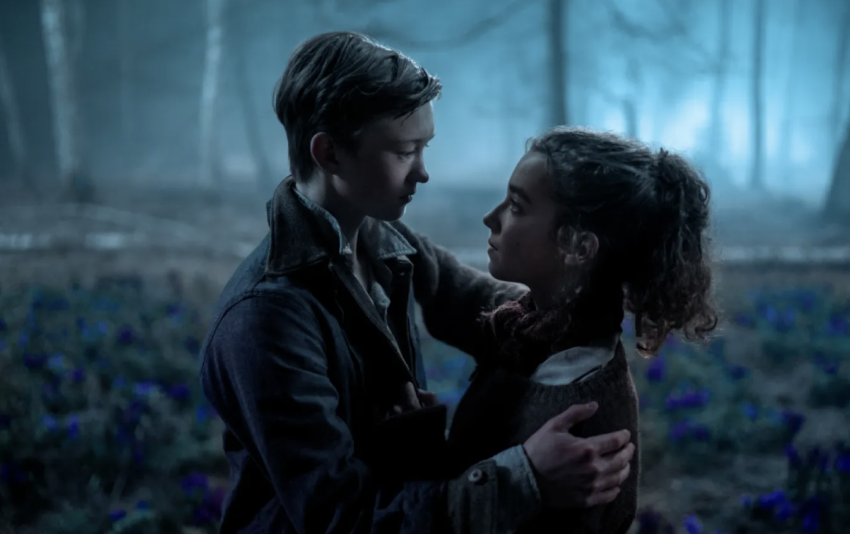'White Bird' film expands 'Wonder' universe with tale of redemption: 'Our good deeds have ripple effects'

Redemption, courage and the “ripple effects of kindness” take center stage in the forthcoming film “White Bird,” an uplifting tale set against the backdrop of World War II and starring Helen Mirren and Gillian Anderson.
“White Bird” Director Marc Forster told The Christian Post the Lionsgate film serves as the “sister piece” to the 2017 film “Wonder,” which follows the story of Auggie, a little boy with a craniofacial difference. In turn, “White Bird” picks up with the story of Auggie’s bully, Julian (Bryce Gheisar), who has struggled to belong ever since he was expelled from his former school for his treatment of Auggie.
Sensing her grandson's difficulties, Julian’s grandmother (Mirren) reveals to Julian her own story of courage: during her youth in Nazi-occupied France, a boy shelters her from mortal danger. They find first love in a stunning, magical world of their own creation, while the boy’s mother (Anderson) risks everything to keep her safe.
Forster, who is also behind “Finding Neverland” and “Christopher Robin,” told CP that as a father, he wanted to make the film due to the story’s message for younger audiences.
“I love humanity, and I love humans, and I believe that kindness lives on forever, past when we are gone,” he said. “Even when we’re gone, the light of kindness remains. That’s something I want young people to understand — our good deeds have ripple effects we may never fully realize."
An adaptation of a YA graphic novel by R.J. Palacio, “White Bird” gives Julian a chance for redemption — a theme Forster told CP he is particularly fond of. "I love stories of redemption,” he said. “I think it’s important for young people to see that even people who have made mistakes can change."
Forster said he was deeply drawn to the story’s perspective on the Holocaust, and though a companion piece to “Wonder,” how it stands alone as a story about bravery, love and the profound impact of kindness.
"It’s an inspirational love story, which is not something you usually see with Holocaust narratives," he explained. "It shows the power of love and redemption, themes that are especially important for today’s audiences."
“This story can happen anywhere in the world where people are in crisis or at war,” he added. “It’s not just about the Holocaust — it’s about everyday acts of courage and kindness.”
He hopes, he said, the film will inspire audiences to reflect on how small gestures of humanity can have lasting impacts. "We just need to be aware and open our hearts," Forster emphasized.
“White Bird” was originally slated for release in October 2022 and then in August 2023 but had to delay its opening to 2024 due to the actors’ strike. Earlier this year, Lionsgate announced the film would be released in theaters on Oct. 4.
As “White Bird” finally makes its way to theaters, Forster told CP he believes its timing couldn’t be more apt.
"When we made the film, there was peace in the world. Now, with everything happening globally, the film’s message feels even more relevant," he reflected. "Sometimes you have to let go and trust that a story will find its audience when the time is right."
Also written by Palacio, Wonder became a New York Times bestseller, selling over 8 million copies worldwide. It's also required reading in many middle schools across the United States.
The film adaptation of the book, starring Julia Roberts and Owen Wilson, earned a staggering $132 million at the box office against a production budget of $20 million, according to Box Office Mojo.
Palacio previously told CP that over the years, she's received thousands of emails and letters from children who have facial differences, and parents of those children describing how the book has impacted them. The stories that move her the most, she said, are those from the "real-life Auggie Pullmans."
"I had one dad tell me that before Wonder came out, just taking his son who had a very severe craniofacial difference to the playground was a big deal," she recalled. "They had to mentally prepare themselves every single time. One day, when his son went to the playground, kids came up to him and said, 'Hey! Are you like Auggie Pullman?' Now, it's completely different. It totally changed his son's personality. Those are the kind of stories that are extremely inspiring to me."
The author told CP that through her work, she wants to inspire children to be kinder to one another and encourages parents to examine their own thoughts and attitudes toward those with differences.
"Before we talk to our children, we have to be aware of how we are," she said. "We need to embrace diversity and accept differences in our community. You might not be living next door to someone with a craniofacial difference, but you might be living next door to someone of a different race or religion who may feel isolated. As parents, we need to use every opportunity to teach our children kindness and that there is beauty in differences."
"Ultimately, Wonder is a meditation on kindness," she continued. "It's a story about the impact it can have on our fellow human beings, it's about compassion and tolerance and acceptance. I think I'm trying to inspire empathy and that through storytelling, that's the best way to do that."
Leah M. Klett is a reporter for The Christian Post. She can be reached at: leah.klett@christianpost.com



























